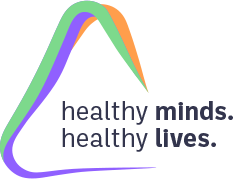FOCUS AREA 2
Availability, awareness and access of services
Identify what support you need, what is available, where the service or support is and how you access it
Overview
Improving mental health, suicide prevention and alcohol and other drug treatment services requires consideration for availability, awareness and access of services.
This includes:
- understanding and identifying the needs of individuals and communities
- working together to determine what services and support are required to meet those needs
- making services available
- building awareness of available services, for individuals, referrers and providers
- supporting access to services, which can include overcoming physical barriers (e.g. transportation, distance) as well as other personal barriers (e.g. convenience, fees, discrimination).
What we heard
Inpatient care is primarily available only in urban areas
Those who require inpatient care often transfer to urban areas, creating challenges including transportation and moving away from community. This gap includes the lack of rehabilitation (rehab) and detox services outside metropolitan areas.
New touchpoints offer a chance to identify and refer people to services and support, who may otherwise fall through the ‘cracks’
There is a strong appetite to consider new interaction points to act as soft referrals into services. The Plan will need to investigate how providers can use existing touchpoints within communities or at times of crisis to identify and refer people who may not be picked up by traditional pathways (for example, disaster support crisis staff in council or state call centres).
For people who live in regional areas, the travel distance to access services (particularly tertiary services) can be prohibitive
Individuals from outer regional and remote communities who require certain services (e.g., detox services) often travel to the nearest metropolitan hub which may be several hours away. In some cases, this may result in higher rates of people leaving their service prior to completing treatment as many people find it difficult being isolated from their families and communities when receiving treatment.
Telehealth has increased the accessibility of many support services
The ease of access that digital solutions like telehealth have created has been beneficial for some people. Although there are outstanding issues to address with telehealth, it can provide increased access to services (in particular for outer regional and remote communities).






